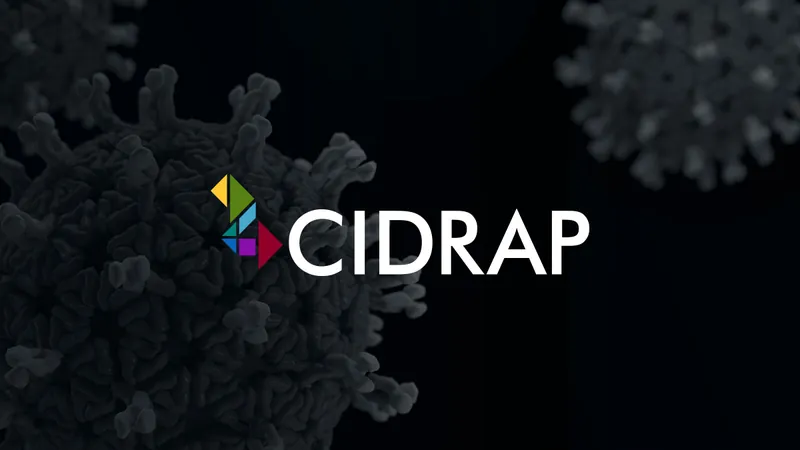
Revolutionary 'Tagging Tool' for Cancer Immunotherapy Unveiled in Shanghai
2025-09-13
Author: Wei
A Game-Changer in the Fight Against Cancer
In a groundbreaking breakthrough in the field of cancer immunotherapy, researchers have developed a cutting-edge tool that utilizes advanced technology to enhance the immune system's ability to identify and target cancer cells.
The Challenge: Disguised Cancer Cells
Cancer cells are notorious for their ability to evade detection, often masking themselves with minimal natural signals that make them difficult for the immune system to recognize. This clever disguise poses a significant challenge in the effectiveness of traditional immunotherapy.
Meet the Nano-Tagging Robot
Led by the innovative Han Shuo from the Center for Excellence in Molecular Cell Science at the Chinese Academy of Sciences, the research team has ingeniously employed proximity labeling technology, previously used in chemical biology, to create a revolutionary nanozyme. This 'nano-tagging robot' harnesses deep-red light or ultrasound to precisely locate cancer cells.
How It Works: Targeting Cancer Cells with Precision
The nanozyme is not just a passive observer; it can carry antibodies or ligands specifically designed to recognize cancer cells. By circulating through the bloodstream and receiving signals from deep-red light or ultrasound, it effectively tags cancer cells, making them visible targets for the immune system.
Double Duty: Activating T Cells
In lab experiments, the researchers introduced a specially-designed BiTE molecule into mice. This molecule not only highlights the cancer cells but also activates immune T cells, rallying them to combat the disease. According to Han, this innovative tagging can stimulate the immune system to create a lasting memory of the cancer cells, almost like administering a 'tumor vaccine' within the body.
Promising Results and Future Implications
The findings have demonstrated impressive therapeutic effects in both experimental mouse models and in clinical tumor samples. This pioneering study, recently published in the prestigious journal Nature, is anticipated to open up new avenues for the next generation of smarter, more efficient immunotherapies.
A Leap Forward in Cancer Treatment
With this transformative approach, researchers are optimistic that this technology could lead to breakthroughs in treating various types of cancer, significantly enhancing patient outcomes and revolutionizing cancer treatment as we know it.



 Brasil (PT)
Brasil (PT)
 Canada (EN)
Canada (EN)
 Chile (ES)
Chile (ES)
 Česko (CS)
Česko (CS)
 대한민국 (KO)
대한민국 (KO)
 España (ES)
España (ES)
 France (FR)
France (FR)
 Hong Kong (EN)
Hong Kong (EN)
 Italia (IT)
Italia (IT)
 日本 (JA)
日本 (JA)
 Magyarország (HU)
Magyarország (HU)
 Norge (NO)
Norge (NO)
 Polska (PL)
Polska (PL)
 Schweiz (DE)
Schweiz (DE)
 Singapore (EN)
Singapore (EN)
 Sverige (SV)
Sverige (SV)
 Suomi (FI)
Suomi (FI)
 Türkiye (TR)
Türkiye (TR)
 الإمارات العربية المتحدة (AR)
الإمارات العربية المتحدة (AR)